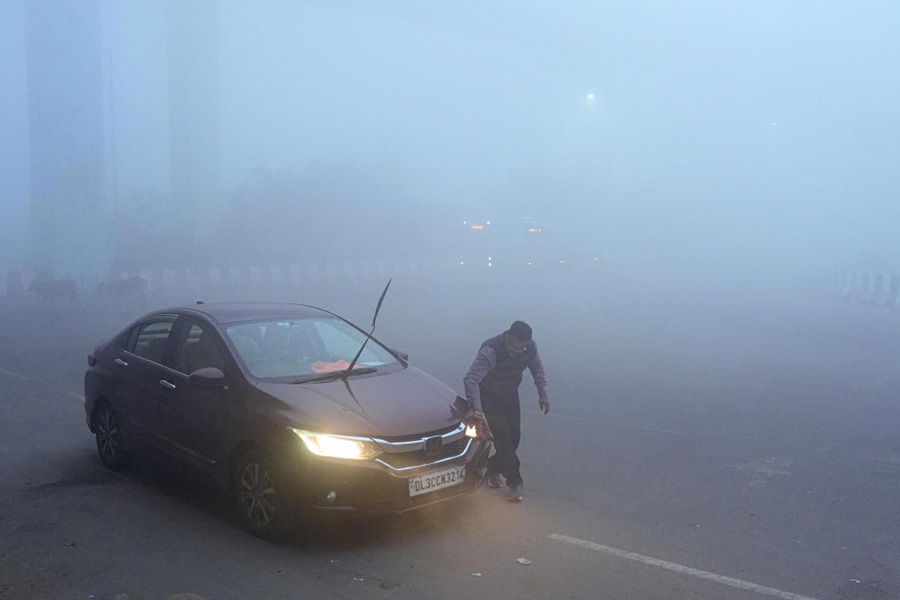Book Name- Literature Against Fundamentalism
Author- Tabish Khair
Published by- Oxford
Price- Rs 495
On the face of it, this slim volume of essays on ‘Literature against Fundamentalism’ is intended for a community of scholars and students of literature. Yet, on closer look, this narrow positioning of the book militates against the very spirit of its compelling polemic.
For even though written in the context of the global crisis of Literary Studies and the Humanities at large, evident in the neoliberal practices of academic accounting, lack of public support, fund cuts, dwindling enrolments and a revolutionary transformation of academic work with the onset of digital technologies, Khair’s engagement with the questions of literature and fundamentalism seeks to transcend the context of this immediate disciplinary crisis and debate these commonly understood categories as a way to make better sense of the larger crises facing the world today.
To the outsider, the trials and tribulations of Literary Studies are only hazily known as meaningful, interdisciplinary conversations are rare in academia. Tabish Khair’s essays in that context are an invitation to engage not only with Literary Studies but also with literature as it is conventionally understood. He argues that notwithstanding the many disciplinary debates on the meanings of literature in the academia, what gets surprisingly ignored is not only a sense of literature as a “way of thinking” but also the deeply entrenched disciplinary constraints on reading “literature as literature”.
All five essays in the book are elaborations of this argument but for the general reader looking for connections between the arguments made for reading “literature as literature” and fundamentalism, a slightly familiar way into the complexities of Khair’s provocations is perhaps through chapter five. It may be pointed out, however, that at the very outset, Khair makes it clear that the purpose of this book is not to talk about literary engagements with or representations of fundamentalism, particularly religious fundamentalism of the kind we see in Salman Rushdie’s The Moor’s Last Sigh or Mohsin Hamid’s The Reluctant Fundamentalist. The exercise is rather to offer a way out of what he regards specifically as fundamentalist modes of reading literature, whether religious, secular or disciplinary.
What then is a fundamentalist mode of reading literature and what is the “agnostic” mode which Khair proposes as an alternative? And why must the agnostic mode of reading literature be the only route to reclaim literature as a way of thinking about the ever elusive relationship between language and reality?
Chapter five begins with a discussion on fundamentalist readings of sacred texts by pointing to the attempts made to not only insist on a “singular delimited” reading of the text but to also “police” its multiple meanings and fix a single authoritative claim on its custodianship by a narrow “priesthood”. Fundamentalist readings insist on the intrinsic transparency of language and the knowability of the divine and fear attempts at any historicisation or contextualisation of the text. An “agnostic” reading of sacred or secular literature on the other hand concedes the limits of language and embraces the gaps, silences and obscurities that stand in the way of the “knowability” of reality or the human condition within it.
Interestingly, Khair’s polemic takes aim not only at fundamentalist readings of religious texts but also all kinds of disciplinary fundamentalisms that seek to “pin down in language what cannot and will not be reduced by language.” Here, he refers to the fundamentalisms of both literary theory and liberal humanism. His case against literary theory is that to speak of or interpret literature in the complex language of theory is to perform two moves that are “alien” to the nature of literature. One, to reduce what literature cannot or does not put in language — its inevitable gaps and silences to a “metalanguage” and, second, to devalue or ignore literature as a “thinking device”. The grouse against the fundamentalism of a liberal humanist take on literature is its assumption that the purpose of literary training is to engender a “correct” reading of the literary canon.
For Khair then any attempt to pin down, discipline, summarise, theorise, reduce, make transparent the essential “slipperiness” of the relation between language and reality is what amounts to a “fundamentalist” reading of literature, one that comes in the way of reading “literature as literature” or, more importantly, of literature as a way to think about reality with and through language. The penultimate chapter reiterates this argument by presenting the differences between scientific and literary understandings of reality as one that reads, predicts and explains in disciplinary language what is perceived broadly as an unchanging physical reality and the other that affirms through the limits of language the essential “unknowability” of human reality.
As all polemical literature does, Khair’s essays argue, persuade and provoke in equal measure. The call to action at the end is a compelling appeal to both students of literature and a wider community of humanities scholars to reclaim the value of “literature as literature” by reading it in “agnostic” mode and liberating it from every kind of insidious fundamentalist constraint.











